House of Cards, interview with Lord Michael Dobbs
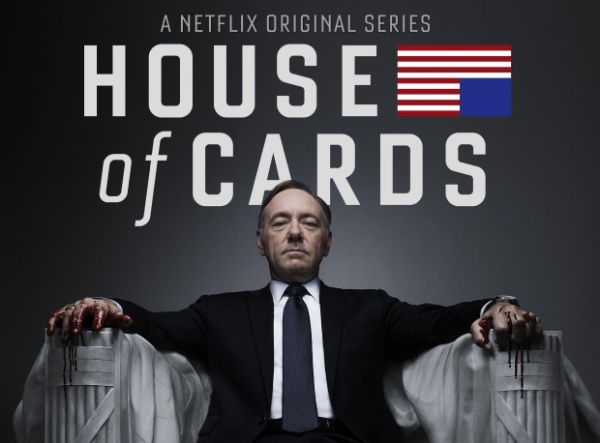
Lord Michael Dobbs (Lord Dobbs of Wylye for his full title) is the creator of House of Cards.
A former Chief of Staff and Deputy Chairman of the Conservative Party, Michael Dobbs created House of Cards after a bruising encounter with Margaret Thatcher. His book, centred on the character of Francis Urquhart was published in 1989 and turned into 3 series by the BBC.
In 2013, the US online streaming service Netflix, launched its first original content on the site. It was a remake of House of Cards, starring Kevin Spacey and Robin Wright. The director was David Fincher and Netflix has reportedly poured over £100m on this series.
Can you tell us the how you created House of Cards and the origins of the Character Francis Urquhart (later Underwood)?
It was therapy. After the 1987 election campaign, which had been a bloody time for me, I sat beside a swimming pool in Gozo with my bruises, my thoughts, a bottle of wine and a writing pad. By the time I had finished the bottle I had two initials written on the page. F.U. The initials became Francis Urquhart, the character became House of Cards.
I had never intended to get it published, least of all to become a full-time writer, but The Times reported that I was writing a book (they thought it was the inside story of Maggie's Swinging Handbag) and publishers started to call. I succumbed to their blandishments over more wine.
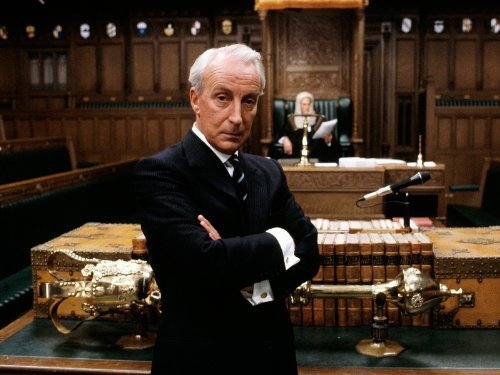
Francis isn’t a sympathetic character by any means, how do you manage to make audiences still like him?
Doesn’t a little bit inside us all want evil to triumph? Anyway, great political figures are uncomfortable people, so FU had to be a player from the dark side. But the wonderful theatrical device of FU addressing the audience directly, borrowed from Shakespeare’s Richard III, brilliantly exploited by Andrew Davies (the BBC scriptwriter) and used to perfection by Ian Richardson was the real secret. It broke through that fourth wall, involved us as viewers in the wickedness, made us all complicit. And accepting, even eager, for more.
The original BBC series was screened more than 20 years ago. Could you believe it when you heard MRC and Netflix wanted to remake it? What happened?
I have had enquiries from the US several times since the BBC version was aired, but none of them had made it beyond script stage. When MRC and Netflix knocked on the door, I failed to take it too excited - until they told me that they had retained Kevin Spacey. He is, in my view, a master of the theatre, one of the greatest of our age, the man who has rescued The Old Vic both creatively and financially. Ian Richardson and Spacey? I felt like I had won two Olympic gold medals without even breaking sweat.
You will find this difficult to believe (I still have trouble, even as I write this) but my wife woke up one morning and told me she’d had a really vivid dream about Kevin Spacey. A few hours later we heard he’d agreed to do the show.
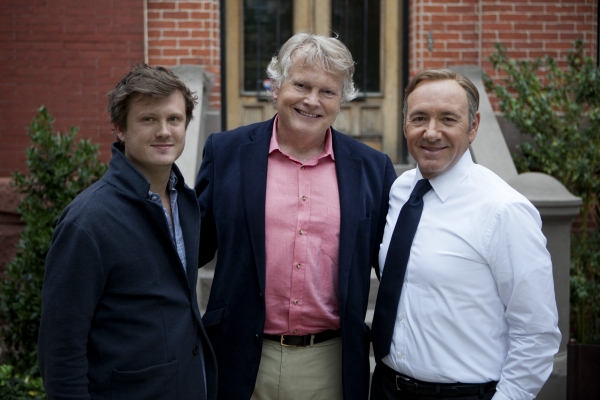
Many experienced directors were involved in HoC, but led by David Fincher. Where you aware of his work and were you involved in the development with him and screenwriter Beau Willimon?
Who couldn’t be aware of Fincher? Brilliant director and also a very fine gentleman. But this was the first time he’d worked in television, I believe, which made everything a little more exciting. And I met Beau at an early stage, he took me around the set in Baltimore while I showed him around the House of Lords. The set in Baltimore, incidentally, is stunning in its attention to detail. Even the doors on our Oval Office close with an authentic sound. Both Beau and I experienced political campaigners and writers. There’s a natural empathy between us.
Dare I say this? But the MRC-Netflx experience has been one of the happiest professional periods of my life.
Ian Richardson was magnetic as the original FU, how important was it to get someone of the calibre of Kevin Spacey for the MRC-Netflix series?
The story has been extraordinary, the ambition immense. The production budget has been subject of all sorts of speculation but, yes, it’s large! And Netflix agreed to commission two 13-hour series even before a single camera was set up, which is unheard of. The level of trust on all sides has been both eye- and mouth-watering. But it wasn’t just the money but the quality that brought everyone together. Kevin Spacey and Robin Wright were the icing on the cake. There were too many huge reputations at stake for it to fail.
It was rather different with Ian Richardson. Before he played FU he was a face that everyone recognised but not a name many could recall. Then we watched his eyes turning on us and an entire nation froze in fear. His early death was a huge loss to the British acting scene.
Has the World of politics changed since the original HoC era, compared to today?
I started writing House of Cards more than 25 years ago. The business of politics has changed substantially since then, particularly with the emergence of social media and 24-hour news. But it’s what remains the same that’s most important. Ambition, desire, principle, wickedness, loyalty, duty, betrayal – and lust - all those things that are required for politicians to get their hands on the sticky levers of power and to get anything done. Power requires compromise, compromise requires stepping back from one’s principles, and even as you take your first step in politics you have set out on a slippery downward slope. That hasn’t changed in centuries, which is why Shakespeare is still so relevant today.
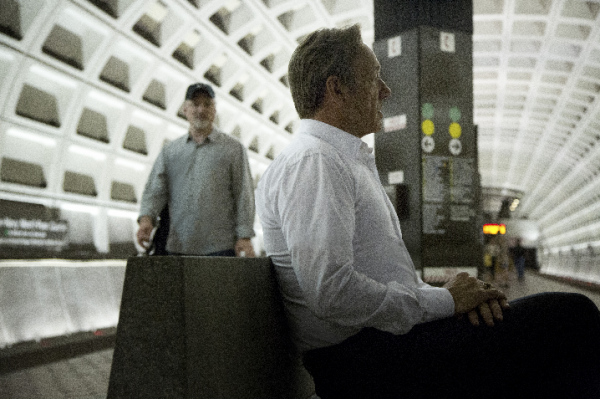
HoC is the first online drama to be recognised by the Emmy’s. Was the prospect of an online only show daunting and did you feel any apprehension towards this non-traditional model?
I love being involved with brave people trying new things. The element of risk is what keeps everything fresh. The concept of releasing House of Cards online was a hugely important part of the show’s appeal to me, and the debate about whether to release it in one go or as thirteen individual episodes raged hard. But if you believe in the concept of giving the viewer what they want, when they want it, we had to be true to that goal. House of Cards is not simply a beautiful show, it’s also part of a revolution in entertainment. It proves that quality is the key to financial as well as creative success; it doesn’t all have to be reduced to the lowest common denominator.
Will you be attending the award show?
I have my party frock aired and ironed.
What are you working on at the moment?
Another novel in my Harry Jones series, two political documentaries and a new drama series I’m developing with Adam Price, the creator of Borgen. I also have a theatre play about Winston Churchill waiting in the wings. For a little light relief I go to the House of Lords on a regular basis.
Visit Lord Michael Dobbs own website here michaeldobbs.com
thecallsheet.co.uk has over 2500 members including Oscar, Bafta and Emmy award winning talent, all in a database of over 45,000 people, productions and companies.
We post jobs in Films and TV, are you a member? Find out more about thecallsheet here http://www.thecallsheet.co.uk/
RELATED ARTICLES
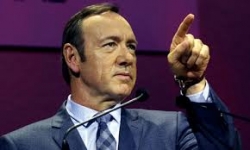 The James MacTaggart Memorial Lecture 2013: Kevin Spacey
The James MacTaggart Memorial Lecture 2013: Kevin Spacey
Kevin Spacey delivers the keynote speech at the Guardian Edinburgh International TV Festival. Watch the entire speech HERE